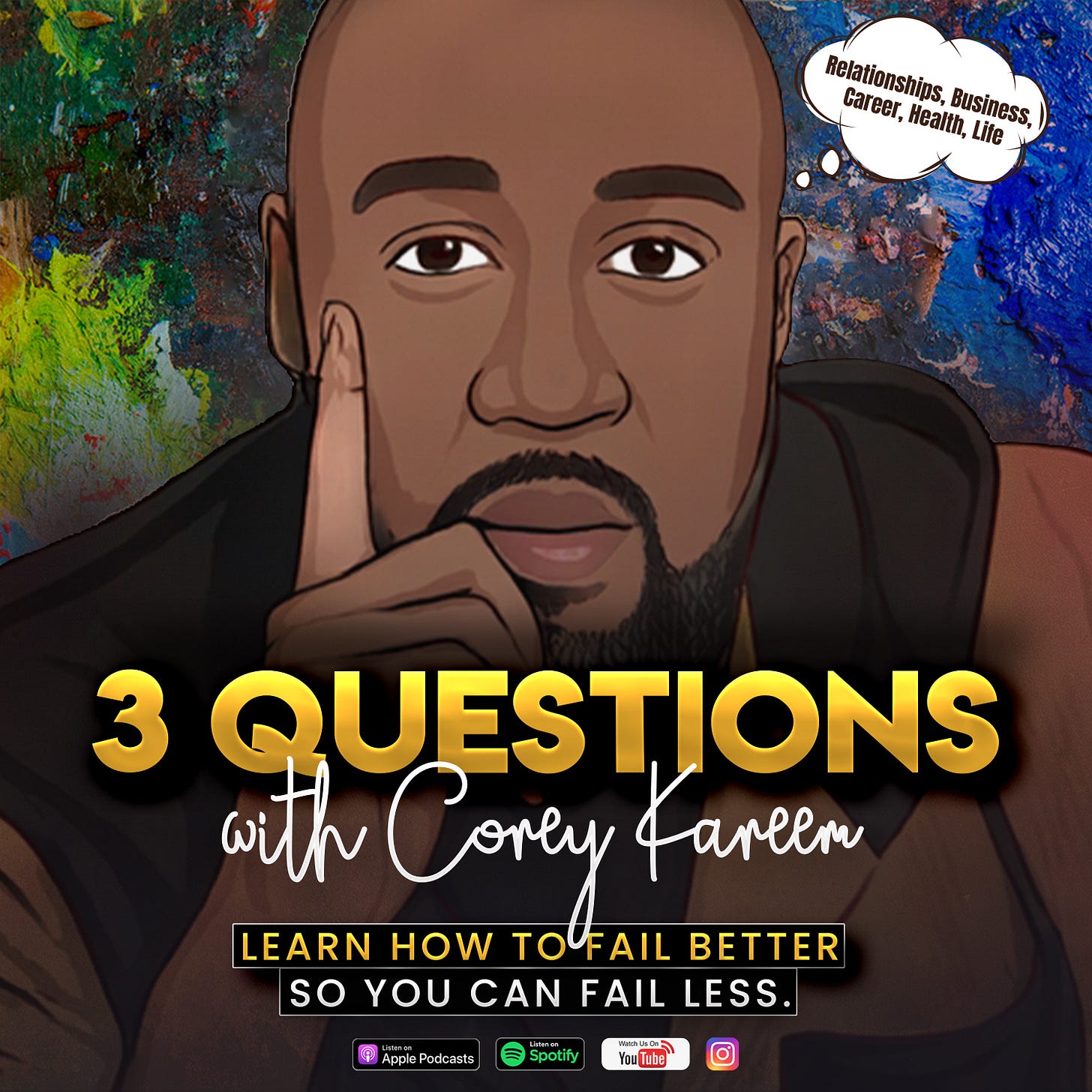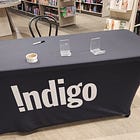
There’s a feeling you get when you’re in the middle of writing a book. Your mind flutters with ideas, you’re experimenting with structure, building characters’ personalities, figuring out the most creative way to tell the story that’s on your mind and your heart and nothing else matters.
But then you get through a couple of drafts and start thinking about who’s going to read your book. You’re not writing this for yourself so readers are important. Now you question if that structure is too complex, if the characters are relatable enough and if maybe you’re being a bit too creative. What if no one buys your book? Worse, what if they don’t even know your book exists?
Alas, there’s an answer to that last question, right? A platform that was single handedly supposed to solve the problem of discovery. But that saviour has come with a great sacrifice, and it’s that sacrifice that I want to talk about today.
And so we’re clear, this isn’t about slandering any one platform. This is about authors—about why we write, how we write and about taking control of our stories. This is also about readers—about why they read, what they read and their ostentatious impact on the industry.
So much of publishing can feel out of our control. We query agents and hope they like the four-paragraph summary of our books. We submit our manuscripts to publishers and cross our fingers that it fits what they’re looking for. We turn to social media to share our stories and hope the algorithm gods are on our side before our pages finally get into the hands of readers.
That last point can feel especially flagrant because it’s affecting all the others. Readers’ tastes and preferences have always been a determining factor for which books become popular; that’s nothing new. What feels new to me is writers feeling more pressure than ever to shape their stories to align with those readers’ tastes because readers now have the loudest platform in history to express their views.
The biggest critique I received from readers of my novel And Then There Was Us was that the relationship between my main character, Coi, and her boyfriend essentially wasn’t fulsome enough. Readers wanted that relationship to be more present in the story.
That criticism could be totally fair. But I would like to point out that the novel had nothing to do with Coi and the relationship she had with her boyfriend and everything to do with the relationship with her mother and other family members. Her boyfriend was a functional character I included to advance a specific part of the story (won’t get into details).
But we’re in the Romantasy era; BookTok says so. So when BookTok readers get a whiff of any romantic relationship, their mind is conditioned for that to be the main event. Of course, I could’ve played up the relationship between Coi and her partner, and to be completely honest with you I actually thought about it for this very reason, but it didn’t fit the story so I kept it how it was.
I’m using my novel as an example of how readers today dictate so much of not just what is read, but what authors choose to write and publishers choose to promote. And again, I understand that part of this is completely normal. Trends have always shifted from one to the other for centuries.
But I have never seen those trends dictated by a single platform. More than anything, I believe this narrow body of literary representation is a threat to creativity.

More broadly than that, I think the entire concept of social media is a threat to the creativity it takes to write full books. It is pushing us to present our writing in ways that are not conducive to the creative process. Books take time to write and novel ideas take time to formulate. We need time to linger, to dream up then kill our little darlings before we complete the drafts necessary to finally put a period to our completed manuscript. This type of slow burn is the opposite of what social media demands.
BookTok, very specifically, has curated a distinct taste in books. And while I actually appreciate its impact on authors’ careers, it only represents a small portion of what readers prefer. The issue is that BookTok is (was) loud. It quickly became the go-to platform for discovery but we forgot that it shouldn’t be the only consideration.
How loud you ask?
BookNet Canada tracked backlist sales on 20 titles from 2019-2022 that were trending on BookTok. They wanted to see if there was truly any sales increase in these titles and if so, how significant.
Their findings?
The aggregated sales of those 20 titles increased by 1,047% overall. And if you track the peak period of those sales from 2019-2021, the increase was 2,166%. Yes, BookTok increased the sales of these books by over 2,000%.
Wonderful, right? What can possibly be bad about this?
Well, within all the hoopla we see problems like with the novel Fourth Wing by American author, Rebecca Yarros. I told you that BookTok has a very specific taste, and that taste is Romance and Fantasy. Fourth Wing was both, for which we have since developed the term Romantasy.
Fourth Wing flew to the top of the bestseller list in its 2023 debut, due primarily to its popularity on BookTok. Fourth Wing was part one of what was supposed to be a three-part series. Yarros initially planned to release the following books slowly, but just six months later, Iron Flame was published and released into the BookTok world. This is where the problems started.
According to several readers and publications, Iron Flame was heavily criticized for poor editing and misprints. More seriously, there was widespread criticism about the misuse of Gaelic grammar, something even Yarros herself had to apologize for at her book launch, where she struggled to pronounce the Gaelic words from her own novel. Taking this a step further, what was supposed to be a three-part series was stretched into five parts. Yarros claims that time constraints in the narrative is the reason for the two additional books, and that her publisher was all too happy when she suggested the extensions.
Do you see my point here?
Please don’t get stuck exclusively on my using Yarros as an example. What I want you to focus on instead is how a single platform pushed a writer to speed up her writing process and potentially add two additional books to a series that she previously had not envisioned. Were all of the books after the first, written with the care it took Yarros to create the original title, with the time and attention to detail it takes to develop characters, to really structure a book and get the story right? Or was Yarros the victim of a platform that needed to be fed? And was her creativity compromised to feed that platform before it digested her books and moved onto the next?
In this instance, was the author writing for herself and for her readers or for BookTok? Maybe in this example, all of those things are synonymous and that was the problem. Because not every author following Yarros’ example will have her success. The keen writer trying to capture the trend so they can become a meal for the BookTok appetite usually finds themselves disappointed. But even if that isn’t true, even if that writer becomes an appetizer, we need to ask ourselves if the cost of creativity is worth the taste.
Fast fashion refers to the speed at which clothing moves from design to production to sale. It’s categorized by cheaper quality and lower prices and some would argue that BookTok based literature is similar to fast fashion in that it pushes out books based on popular tropes and diminished quality. I have not read enough BookTok stamped books to make that statement definitively, but that’s not the point of this. What I want is for authors to be aware of their own standards and pay attention to what’s happening.
Because authors, I see so much hope now. What if the folding of TikTok, whether it stays banned or not, is the inspiration we need to give ourselves the authority to write more freely, more creatively, and without the limiting parameters of any platform. Let’s use this moment to break out of the algorithm jail and forge our own journeys, complete with taking whatever time it takes to find our readers, wherever they may be.
I think of Toni Morrison and how methodically her career developed. I think of Ken Follet writing 11 novels before becoming a bestseller. He’s now sold 200 million books. I’m thinking about the middle-aged author I met on Substack who wrote his first book at 50 and found his audience on this platform or the other Substack author who serialized her book to hundreds of paying readers. I am thinking of myself, who has been extremely fortunate to find a publisher who is patient with me and open to my ideas, because there are good publishers out there, too, who allow their authors to thrive in the way that we determine.
Readers’ tastes are as diverse as people themselves. As authors, we need to recognize that there is no “right” novel, only the story that you feel inspired to write. And we must also understand that in the vast majority of cases, it takes time to find the readers that will appreciate your particular taste and that’s okay. You will find them or they will find you.
Your job is to tell that story and let people know that story exists.






I agree with all of this, and yet I wonder if we authors sometimes take the wrong lesson from "just write what you want." Maybe we should think about stories in a different way, not as one-way communications to our readers, but as community experiences. Is it really a book if no one reads it? When you look at a book as a shared experience, it puts different demands on the author. It becomes a bigger (and possibly more successful) set of tasks.
Yes!🙌 I’ve been thinking lately of ways I can create a writing career that is more autonomous and aimed and finding my readers (vs writing for the industry). The book I’m querying now is one I’m proud of, and could have a real impact on grieving hearts, but I’m not sure if traditional agents and publishers will open its doors because the story is a slower burn, friendship based journey, so I’m starting to wonder if publishing on substack might be the way…(sorry for the run-on sentence 🤣)